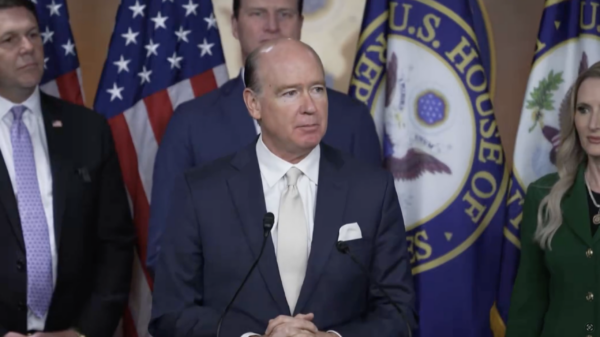Families USA, a non-partisan health care advocacy group, recently released a new report detailing the potential impacts of congressional Republicans’ budget proposals on the 10 states, including Alabama, who have yet to expand Medicaid under the Affordable Care Act.
“The House budget bill passed by congressional Republicans will cut $1.1 trillion from health care spending and cause 16 million Americans to lose health care coverage, impacting the health system we all rely on, in all 50 states,” reads the report.
“The Senate has now released its own proposal, largely following the House’s lead in slashing Medicaid funding and cutting access to services,” the report continues. “While some policies in the bill penalize the 41 states (including the District of Columbia) that expanded Medicaid to low-income adults under the Affordable Care Act — including onerous work reporting requirements, more frequent eligibility checks and mandatory cost-sharing — the House-passed and Senate-proposed bills would harm Medicaid programs in every state, jeopardizing health coverage and care for everyone, including children, pregnant women, people with disabilities, veterans and older adults.”
According to the organization, the Republican budget proposal would result in $75.5 billion in Medicaid funding cuts across the 10 non-expansion states, resulting in 846,000 people losing Medicaid coverage and over 6 million people becoming uninsured. Additionally, these states would suffer an estimated $39.17 billion loss in gross domestic product, and over 361,000 health sector-related jobs would be put at risk due to the cuts.
The group also outlined what they consider to be the budget proposal’s “biggest threats to non-expansion states and their residents.” Among these threats are: reduced enrollment protections and increased paperwork burdens leading to Medicaid and ACA marketplace coverage losses; a freeze on provider taxes, further restricting state funding for Medicaid; the expiration of ACA enhanced premium tax credits, making marketplace plans less affordable; increased out-of-pocket costs in the ACA marketplace; restrictions on retroactive coverage; cutbacks on services due to limitations on state directed payments to safety-net providers; and the termination of incentive payments, making it harder for nonexpansion states like Alabama to expand Medicaid in the future.
“If the House-passed or Senate-proposed bills move forward, millions more Americans will become uninsured while lawmakers in every state — nonexpansion states included — will be forced to make significant cuts to Medicaid services and programs,” the report states. “The end result will be fewer health care services delivered to vulnerable Americans and greater instability for state and local health care systems.”
For Alabama in particular, the report estimates that the state would lose $3.46 billion in federal Medicaid funding over the next decade under the Republican budget proposal. Alabama is also projected to lose $2.04 billion in GDP and nearly 20,000 jobs in the next year alone if the cuts go into effect alongside the expiration of the enhanced premium tax credit.
Additionally, experts have already warned that the Republican proposals could result in the closure of several rural hospitals across Alabama, causing further damage to an already-struggling health care system.

















































